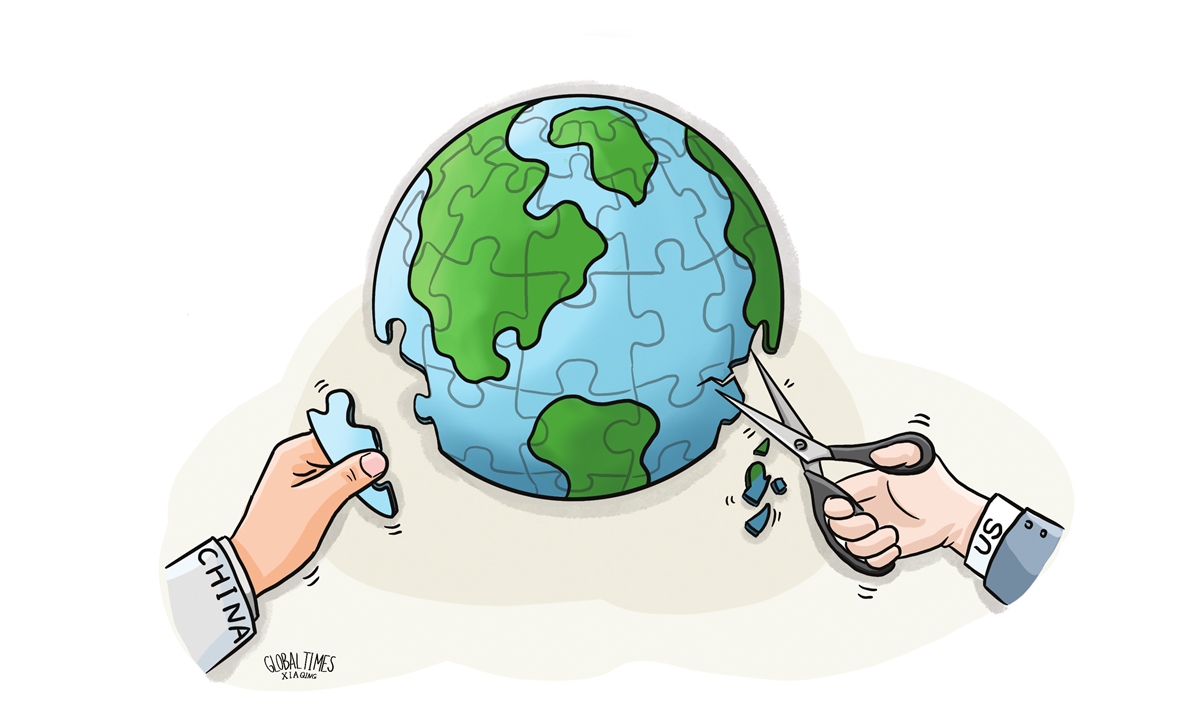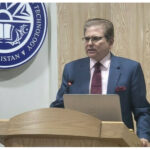China’s position builds on the complexity and urgency of the Ukraine crisis and its implications worldwide, and puts forward constructive suggestions accordingly, which reflects the responsibility of China as a great power. To this end, the US and its NATO allies have no right to point finger with relevant claims and smears.
The Ukraine crisis is the product of the deep-rooted Cold War mentality of some countries, and China has been seeking for an ultimate “antidote.” Ukraine’s geographical location and geopolitical situation have made it a place of strategic importance for neighboring powers. Weaponizing such a Cold War mentality, the US has been advancing the expansion of NATO to the east in pursuit of its own hegemony. Hence, taking seriously of and addressing properly the legitimate security interests and concerns of all countries, and following the vision of a common, comprehensive, cooperative and sustainable security, is the key to resolving the conflict in Ukraine as well as similar conflicts.
As the Ukraine crisis faces potential escalation, the risk of nuclear war is rising. In this context, China stressed the necessity to “reduce strategic risks,” and clarified that “dialogue and negotiation are the only viable solution to the Ukraine crisis.” China’s position and attitude are truly for the sake of the development and stability of the world and in line with the interests and aspirations of the majority.
Given there is still a long way to go for a political solution, China offers constructive ideas about the crisis. All parties should strictly abide by universally recognized international law, including the purposes and principles of the UN Charter, and take various measures to relieve the loss and damage caused by the conflict. For one thing, resolving the humanitarian crisis, the safety of civilians and prisoners must be effectively protected to prevent a humanitarian crisis on a larger scale, so that create conditions for peace talks. For another, facilitating grain exports and keeping industrial and supply chains stable, all parties should earnestly maintain the existing world economic system to boost global economic recovery.
After China published the “position paper”, the US and its allies have kept a close watch on China’s attitude. However, Beijing’s proposal has been misinterpreted with ill-intentioned and partial blames.
It is a consistent and long-standing position of China calling for respecting national sovereignty and opposing unilateral sanctions. On the contrary, the US totally overrides Ukraine’s national sovereignty and the human rights of its people, and only sees it as a tool for geopolitical competition.
China has always held an impartial position on the Ukrainian crisis and called on all parties to abide by international law and the UN Charter and to resolve disputes and conflicts in a peaceful and political manner. China maintains friendly relations with both Russia and Ukraine, and China’s position has been recognized by massive peace supporters.
China is not a party directly involved in the Ukrainian crisis. In contrast, the US and NATO hold the “steering wheel” that determines the destiny of Ukraine.
Against this backdrop, the US and NATO, instead of reflecting on the adverse impact on the regional and international situation, are keen to point fingers at China’s good intentions and sense of responsibility, with the aim of diverting attention, confusing the public, and providing excuses for their unjust actions. The US and NATO intend to create international divisions and bloc confrontations by coercing other countries to take sides. Moreover, they throw mud at China in an attempt to exert pressure, while muster allies to implement the “dual containment” strategy against China and Russia.
The US, with its current power and discourse strength, has been drawing in NATO and other allies with a Cold War mentality and inciting bloc confrontation in pursuit of its own interests. Such behaviors seriously hamper the world’s development and runs contrary to the common interests of mankind.
The author is the assistant research fellow of the Institute of Russian, East European & Central Asian Studies, Chinese Academy of Social Sciences. opinion@globaltimes.com.cn













